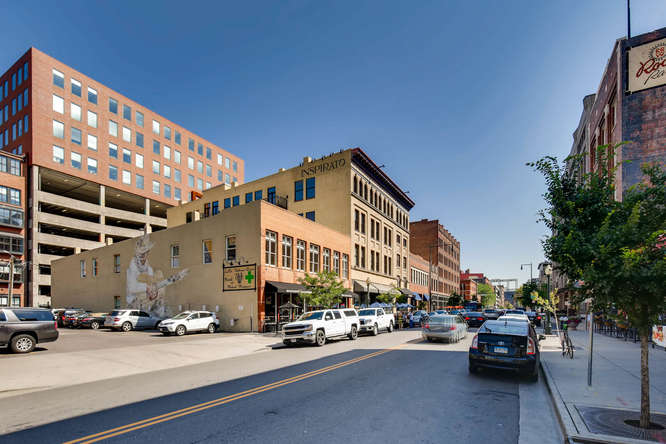As you know, real estate has been dramatically affected by the COVID crisis. There are many economic, social, and political factors that are influencing commercial real estate at this point in time. Below are what we believe are the five most important trends to follow in the coming months, if not years.

Sublease Space Glut
There is currently over 4 million square feet of office sublease space available in the Metro Denver market, close to an all-time high. Much of this space is in well-located, Class A properties at highly discounted rates. These discounted rates offer a “Flight to Quality” for many tenants looking to upgrade their location or image. This will create downward pressure on mid-sized properties lease rates and increased pressure to renew existing tenants for the foreseeable future.
Denver Still Attractive to Investors
A decline in Denver commercial real estate prices is not likely. Despite lower rental rates, it appears that Denver is still very attractive to national investors, corporate relocations, and Gen Z. Lease rates are still a bargain compared to coastal cities. The regulatory and taxation environments of coastal cities are becoming increasingly burdensome and expensive to existing real estate owners. The Denver and Colorado lifestyle is a draw to Gen Z and corporate relocations. The lead CBRE Senior Economic Advisor recently stated, “for investors, everything about Denver is good.”
Hybrid Work Model Creates Office Uncertainty
Is the hybrid model of workers splitting their time between home and office here to stay? As the COVID crisis wanes, many companies are mandating office attendance, other companies are finding the hybrid model can work efficiently. How will these competing forces affect building occupancy and leasing? For the remainder of 2021, expect reduced building populations and reduced demand for space. We expect the hybrid model to remain, but diminishing over time. By Q1 2022, building populations should be close to normal, demand for space will be less than normal but increasing.
Impact of Labor Supply and Construction Costs
Lumber prices soared by over 200% since last spring and labor shortages continue to be the norm. Supply chain issues are impacting construction materials costs and timelines. This creates increased costs for tenant improvements, capital projects and reduces a landlord’s bottom line. Lumber prices may have peaked in May but expect labor supply issues to continue in Colorado. Colorado will continue extended unemployment benefits of $300 per week through September 6, 2021. There is evidence that in states where the extended benefits have ceased, unemployment has decreased and labor participation has increased. Hopefully, the expiration of the extended benefits in Colorado will help loosen the labor market.
Economic Growth and Inflation Fears
Fueled by pent-up consumer demand, U.S. economic growth has been close to historic highs. We expect this will slow down over the next few quarters as business returns closer to normal. State and local municipalities will look for creative ways to recover lost revenues caused by the COVID shutdowns. Expect tax increases everywhere, euphemistically packaged as fees, surcharges, levies, excises, assessments, as well as the stated tax increases from the Biden Administration.
Unemployment is falling, but job growth remains inconsistent. For example, 559K jobs were added nationally in May. That’s a big increase from April when 266K jobs were added, but still far below expectations. Then in June, 850K jobs were added, exceeding expectations.
In Colorado, job openings are hard to fill, adding pressure to wages. Inflation is heating up across the board, especially for gas, food and labor, and looks like it may be here to stay for the near future. This week in the Wall Street Journal, a poll of economists predicted that inflation will increase to 3.2%, year-over-year in the fourth quarter, and remain slightly above 2% in 2022 and 2023.
Summary
COVID created significant disruption to commercial real estate markets, though it was not catastrophic. There will continue to be challenges in the near term as labor shortages and inflationary pressure look as if they will continue, and we have yet to see the full effects of the hybrid work model trend. However, Denver, which has been one of the hottest commercial real estate markets in the country over the past decade seems to have weathered the storm quite well, and continued investor interest speaks to the long-term viability of the market.
Mark W. Kennedy is the President of Wheelhouse Commercial in Denver, Colorado. For more information about how Wheelhouse Commercial can help manage your properties, please call 303.518.7406 or email info@wheelhousecommercial.com.
is the President of Wheelhouse Commercial in Denver, Colorado. For more information about how Wheelhouse Commercial can help manage your properties, please call 303.518.7406 or email info@wheelhousecommercial.com.

